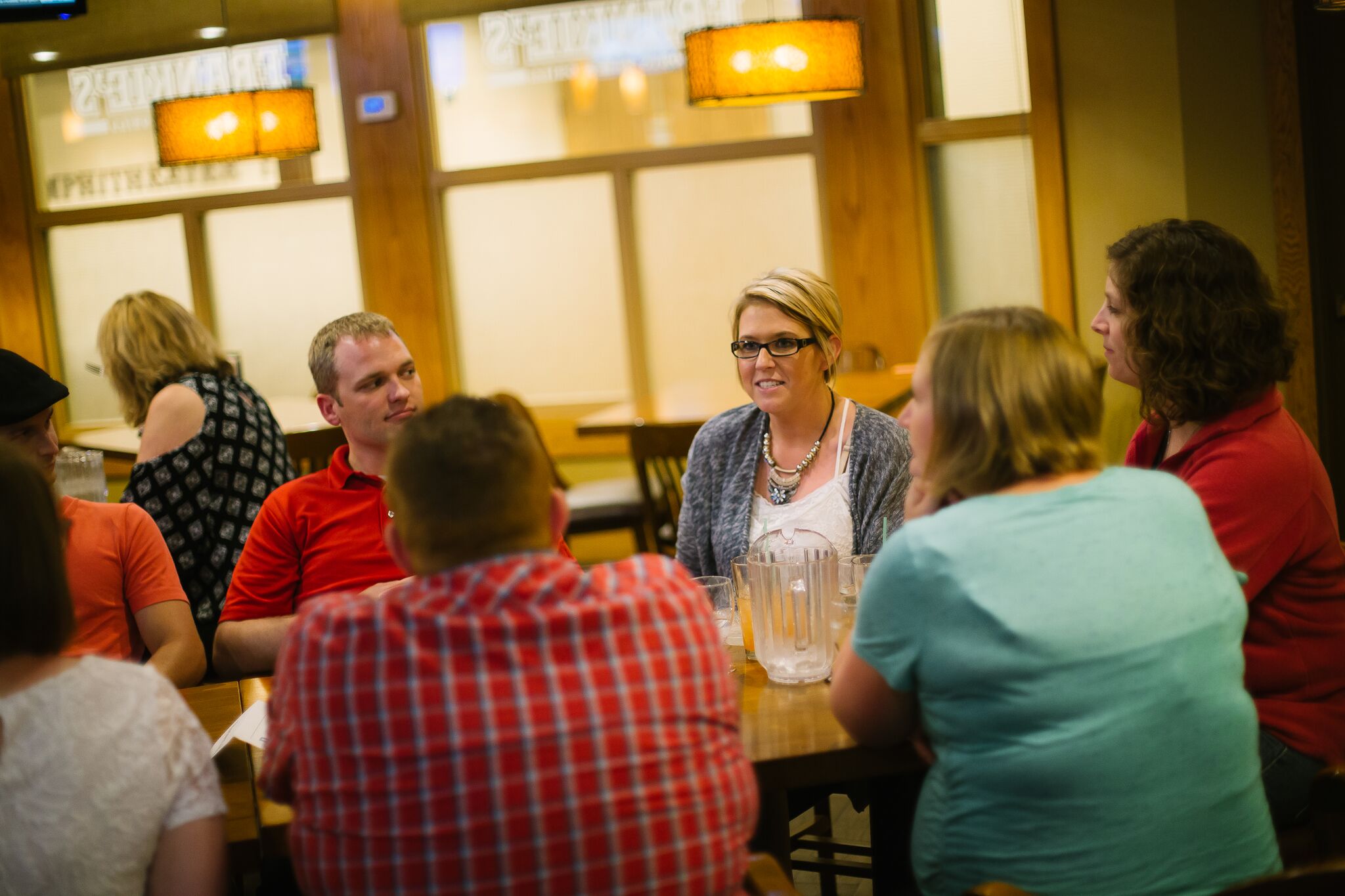
5 ways to change the conversation (turning the tables on who church is for)
By Ben Ingebretson
 “What gets talked about gets done.” Cliché? Maybe.
“What gets talked about gets done.” Cliché? Maybe.
Yet many of us have been disappointed by how the conversations that are typical in ministry are too often not the ones that really matter. If only there was a way to move the dialogue in a more fruitful direction.
Seminary students from across the Dakotas Conference gather for conversation. Photo by Tory Stolen.
Here are five suggestions that may help do just that. The admitted conversational bias is toward the priority of outreach and mission in ministry. Most congregations naturally turn inward over time, and it takes concerted effort to change the conversation about reaching outward. So consider these strategies:
Meet offsite. Something happens to a meeting when the agenda AND the atmosphere beg for a new conversation. Church meetings at a library, restaurant, or community center can prompt leaders to look at ministry from a new perspective. In other words, get off the property!
Start meetings with guided personal check-in. Imagine asking your council leaders to come to the next meeting with a story of how they are getting to know their neighbors…or how they are praying for their neighbors. So often the personal check-in prior to meetings is “navel gazing.” You could change that if you prepared them otherwise.
Dig into MissionInsite. Every church in the Dakotas Conference has access to MissionInsite, a demographics website that contains valuable statistics. Many of us have seen that thick report for our church, but it’s been nudged aside by the tyranny of the urgent. Look again. MissionInsite and the online mission impact guide that correlates ministry strategies to reach the dominant lifestyle groups in your study area will change the conversation if you cultivate the tool with your people. MissionInsite holds information such as what community members are looking for in a pastor, a small group leader, hospitality, communications, and even refreshments. To get started, contact Bea Stucke by e-mail or call 605-990-7791.
Host a focus group and listen. Next time you are planning a new ministry or community effort, invite two to three people who are not part of your ministry to a focus group. Develop open-ended questions. A focus group is a great way to test assumptions you have about your community and how you minister to its people.
Invite a church planter. Why? A church planter has become conditioned to look at ministry relentlessly from the perspective of outsiders. They have to or they fail. Inviting a planter to one of your groups could shake things up or may give a glimpse into new ways of working. After all, planting is commonly known as the R&D (research and development) arm of the church.
Reading this short list has probably prompted your thinking for an even better way to change the conversation at your next meeting. Go for it! Who knows what might finally get done!
Ben Ingebretson is director of new church development for the Dakotas-Minnesota Area of The United Methodist Church.